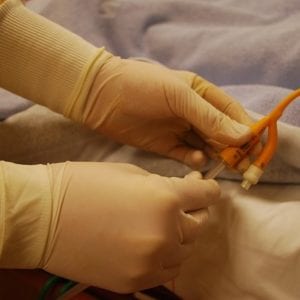Recent advancements in the treatment of metastatic urothelial cancer (mUC) have dramatically improved patient outcomes, primarily due to the introduction of antibody-drug conjugates (ADCs) and immune checkpoint inhibitors (ICIs). According to a report from Oncology Nurse Advisor, these innovative therapies have changed the landscape for patients with advanced urothelial cancer, offering renewed hope in a disease historically associated with poor prognoses.
Shifting the Standard of Care
For decades, cisplatin-based chemotherapy was the standard first-line treatment for metastatic urothelial cancer. While effective for some, many patients are ineligible for cisplatin due to comorbidities or age, and even those who can receive it often experience disease progression. As a result, survival rates for mUC patients remained low, with limited treatment options available after chemotherapy failure.
The emergence of immune checkpoint inhibitors—drugs that harness the body’s immune system to attack cancer—marked the first major shift. ICIs such as pembrolizumab and atezolizumab have demonstrated the ability to extend survival for some patients, particularly in the second-line setting after chemotherapy. More recently, ADCs, which deliver targeted cytotoxic agents directly to cancer cells, have further expanded the arsenal against mUC.
Impact of ADCs and ICIs
ADCs like enfortumab vedotin have shown impressive efficacy in patients with mUC who have progressed after both chemotherapy and ICIs. Enfortumab vedotin targets the Nectin-4 protein on urothelial cancer cells, delivering a potent chemotherapy agent directly to the tumor and minimizing damage to healthy tissues. Clinical trials have demonstrated significant improvements in response rates and overall survival for patients treated with this ADC, even in those with limited treatment options.
Similarly, ICIs have transformed the treatment landscape by providing durable responses in a subset of patients. These drugs work by blocking the PD-1/PD-L1 pathway, releasing the brakes on the immune system and enabling T cells to attack cancer. The use of ICIs has been associated with longer-lasting remissions and improved quality of life compared to traditional chemotherapy.
Combination Strategies and Future Directions
Research is now focusing on combining ADCs and ICIs, as well as sequencing them effectively to maximize patient benefit. Early results suggest that these strategies may further improve outcomes, particularly for patients whose disease is resistant to other forms of therapy.
Despite these advances, challenges remain. Not all patients respond to ADCs or ICIs, and identifying biomarkers to predict response is an ongoing area of investigation. Additionally, managing side effects such as immune-related adverse events and ADC-associated toxicities requires careful monitoring and expertise.









